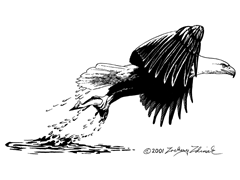Extension Wildlife & Fisheries Specialists Conferences

Triennial National Wildlife and Fisheries Extension Specialists Conference: 11th (2006)
Date of this Version
10-14-2006
Document Type
Article
Abstract
Cooperative Extension is an ideal facilitator for volatile wildlife issues such as endangered species management on private lands. Often, lack of trust in government agencies or fear of Endangered Species Act regulations hinders conservation efforts on these private lands. Extension personnel have close ties to local affected communities and thus can be instrumental in educating landowners regarding options that may be available to them in regards to sensitive, candidate, threatened, or endangered species. While in the past these species have been regarded as liabilities to landowners, in many cases they can actually be assets. However, state and federal agencies are often unable to effectively communicate this message. Additionally, trust levels between stakeholders and agencies (particularly U.S. Fish and Wildlife Service) are insufficient for cooperative conservation. If our field is to move past “shotgun” approaches to conservation and begin to truly conserve species at the ecosystem level, we must be more innovative and find ways to make wildlife valuable to those who control resources. While this has been widely applied to game animals, the potential for endangered species on private lands is largely unexplored. Cooperative Extension should play a pivotal role is this area in the coming years to assist recovery of at-risk species.


Comments
Published in Proceedings, 11th Triennial National Wildlife & Fisheries Extension Specialists Conference, October 14-18, 2006, Big Sky, MT.